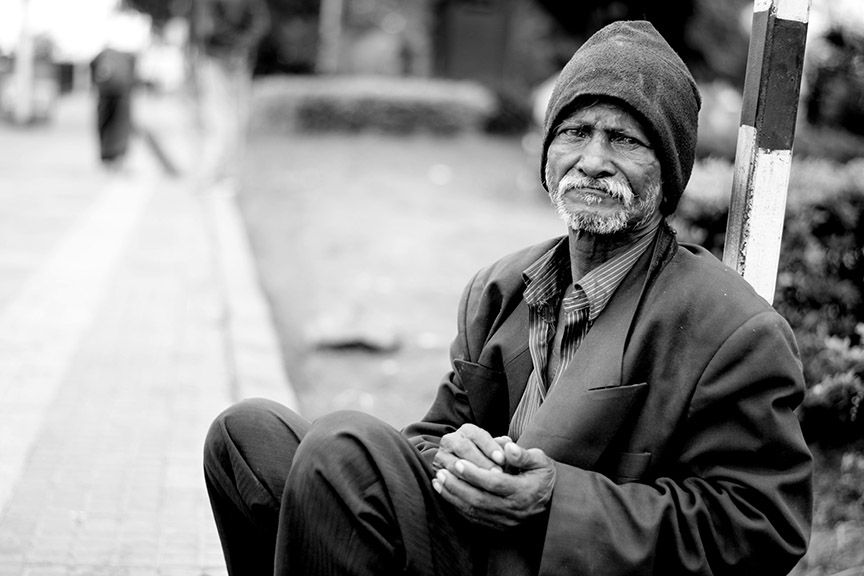The non-debate on poverty

The United States government declared a "war on poverty" in 1964. Some Americans say it hasn't helped. Others say it has. Both sides are correct. That's because they're using different definitions of "poverty." But one definition matters more than the other. In fact, there's no real debate about it.
Detractors of the war on poverty say, "Today, the U.S. spends 16 times as much on welfare as it spent in the 1960s yet the federal poverty rate remains nearly unchanged." Interestingly, they're using U.S. Census Bureau data in this condemnation of U.S. policy. World Bank data paints an even uglier picture, indicating the rate of extreme poverty in the U.S. increased substantially since 1979. The "number of people living on less than $1.90 a day" roughly doubled between 1979 and 2016, from 0.7% to 1.3%. (Even advocates of the war on poverty acknowledge the increase in extreme poverty.)
But advocates say the U.S. Census Bureau data is unsound. One explained that "people rely on the official poverty rate, which is a horrendously flawed measure, which excludes income received from major anti-poverty programs like food stamps or the EITC." Using their "supplemental" measure, "poverty is down considerably from 1967 to 2012, from 26 percent to 16 percent" according to data from Columbia University academics. That's a 38% decrease in total poverty since 1967.
Thus we have a debate with two sides talking past each other. That might help political pundits stay in business, but it's not much good to the rest of us. Let's straighten them out so we can finally settle this discussion.
Detractors are talking about actual poverty, meaning poverty before welfare benefits are considered. Advocates are talking about effective poverty, meaning poverty "after the benefits of anti-poverty programs have been accounted for." Both of these measures are worthy of consideration. Detractors can acknowledge that there is less effective poverty than in the 1960s. Advocates can acknowledge that there is the same actual poverty as the 1960s. These are facts, or close enough to them.
Now, to the central question: are we winning or losing the war on poverty? That depends on our goals, so let's consult our history. President Lyndon Johnson declared the "war on poverty" in his 1964 State of the Union address. He was clear about its aim:
This administration today, here and now, declares unconditional war on poverty in America. I urge this Congress and all Americans to join with me in that effort. ... Our aim is not only to relieve the symptom of poverty, but to cure it and, above all, to prevent it.
That is unambiguous language. Our foremost objective was to conquer poverty, and permanently inoculate our society against it. We can even paraphrase using our more precise terminology:
Our aim is not only to relieve effective poverty, but to cure actual poverty and, above all, prevent it.
The war on poverty has clearly failed according to Johnson's own standards. It has achieved no meaningful success toward its primary aim of preventing actual poverty, and only 38% success on its secondary aim of relieving effective poverty. That is after a solid effort of 50 years and $22 trillion in spending. This is all according to data from either the government or supporters of the government. The failure is undeniable.
Many Americans opposed the "war on poverty" when it was launched. Some believed it was outside the scope of the Constitution, and therefore unlawful. Some believed it was impossible to win. And lo, they were all correct. It seems a very real and serious wrong has been committed against those Americans these five decades. You would think the advocates would be a bit sheepish at this point, maybe even ashamed. But that isn't the case.
The advocates seem to acknowledge the shortcomings of the war on poverty, yet insist not even its continuance is sufficient. They want to escalate it:
In the richest nation on Earth, far too many children are still born into poverty ... That does not mean, as some suggest, abandoning the War on Poverty. In fact, if we hadn’t declared “unconditional war on poverty in America,” millions more Americans would be living in poverty today. Instead, it means we must redouble our efforts to make sure our economy works for every working American.
That was the Obama administration on the 50th anniversary of the declaration of the war on poverty. The same day, Dylan Matthews of the Washington Post proposed a bevy of tax cuts and spending increases. How can these people be serious? They want to gamble more money, and more of the American public's already weak faith in government? It's reckless, and more than a little backward.
We obviously need to combat poverty differently. One way is with better education. Another is with better mental healthcare. But the single most effective way, historically speaking, is economic growth. We need to ensure people are not prevented from earning a living and enjoying the rising tide that lifts all boats. Regardless, we should change how we're addressing poverty very soon.
The federal government spends $668 billion per year on anti-poverty programs. But it has a deficit of $793 billion. It's ironic, but it's true: the Federal Government is too poor to afford the war on poverty. Even if we eliminated all anti-poverty spending, the federal government would still be spending future generations' money to the tune of $125 billion per year.
There is no debate here. We need to end the war on poverty. For the sake of future generations, even if not ourselves. That doesn't mean pulling the rug out from under people who depend on anti-poverty spending. But it does mean starting to roll it up, in the most thoughtfully efficient way we can manage.
